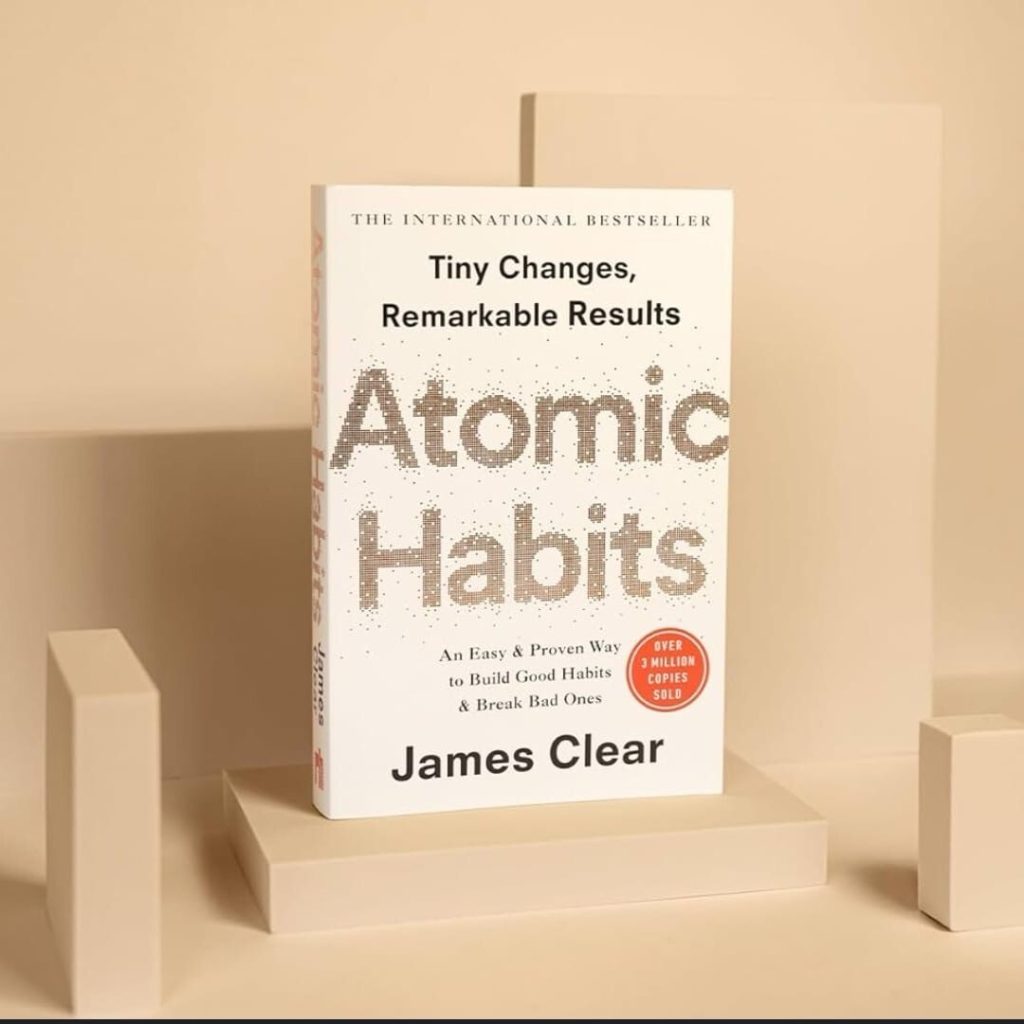It was a rainy Sunday afternoon when I found myself sitting quietly at a small café near my apartment. My laptop was open, a half-finished cup of green tea beside me, and my search bar filled with “best self-help books to read.”
The list was endless. Titles that promised to change your life in 30 days or help you manifest anything instantly. I scrolled through them all, but my heart wasn’t moved. I didn’t want to be told to “think positive” or “believe in myself.” I wanted to understand.
What’s really happening inside the brain when we form a habit, make a decision, or chase happiness? Why do some changes stick while others fade so fast?
Over the years, I’ve realized I’m not drawn to typical self-help authors. I’m drawn to scientists, researchers, and thinkers who spent decades studying the mind, body, and behavior. When someone helps me understand how something works, I can figure out how to apply it naturally to my life.
So here are five self-development books that changed how I think, not because they told me what to do, but because they helped me understand why we do what we do.
1. Thinking, Fast and Slow by Daniel Kahneman
The first time I picked up this book, I was intimidated. It was thick, full of graphs, and written by a Nobel Prize-winning psychologist. But the more I read, the more fascinated I became.
Kahneman explains that our brains operate using two systems:
-
System 1 is fast, intuitive, and emotional.
-
System 2 is slow, logical, and deliberate.
Most of the time, we rely on System 1, the automatic voice that reacts instantly. It helps us make quick decisions, but it also leads to biases and errors.
When I first read about this, I realized how often I let my “fast brain” take over. The instant assumptions about people, the quick emotional reactions, the times I said “yes” to something before thinking it through, that was all System 1.
Kahneman doesn’t offer motivational speeches. He offers clarity. Understanding these systems gave me more awareness over my thoughts. Now, before making decisions, I pause and ask, “Which system is talking right now?”
Lesson: The smarter path isn’t always to think faster, but to notice when to slow down.

2. Atomic Habits by James Clear
When everyone started talking about this book, I thought it was just another productivity guide. But James Clear is not a motivational speaker. He’s a researcher who blends neuroscience, psychology, and behavior design into something deeply practical.
He explains that habits are built through a loop: cue → craving → response → reward. Once I understood this, I started to see patterns in my daily life — why I checked my phone before bed, why I struggled to maintain morning workouts, why some changes stuck while others didn’t.
Clear’s biggest insight is this:
“You don’t rise to the level of your goals, you fall to the level of your systems.”
That line hit me hard. I used to think discipline was all about willpower, but this book taught me it’s about environment. If I wanted to eat healthier, I had to make fruits more visible than snacks. If I wanted to wake up early, I had to make my mornings rewarding, not punishing.
Lesson: Lasting change happens when you make the right thing easy and the wrong thing hard.
It’s science-backed, practical, and surprisingly compassionate, reminding us that change doesn’t happen overnight, but it does happen one small system at a time.

3. The Power of Habit by Charles Duhigg
If Atomic Habits is the manual, The Power of Habit is the map. Duhigg takes us deep into the science of habits through stories, from how Starbucks trains its baristas to how Olympic athletes build routines under pressure.
He introduces the habit loop (cue, routine, reward) but focuses more on the psychology behind why it matters. One of my favorite concepts is the “keystone habit,” one small behavior that unintentionally changes everything else. For some, it’s exercising. For others, journaling or meditating.
When I started walking daily after my rib injury, it became that keystone habit. It didn’t just help me physically recover. It brought calm, focus, and structure back into my days.
Lesson: Habits aren’t just routines. They’re votes for the kind of person you want to become.
Duhigg reminds us that we’re not defined by what we intend to do, but by what we repeat every day.

4. Why We Sleep by Dr. Matthew Walker
This book genuinely changed my life.
For years, I glorified late nights and early mornings, believing that sleeping less meant achieving more. Then I read Dr. Walker’s research and realized how wrong I was.
He explains how sleep impacts nearly every aspect of our health: memory, immunity, creativity, and emotional balance. One fact shocked me: after just one night of poor sleep, your body’s natural killer cell activity (which helps fight viruses and cancer cells) drops by up to 70 percent.
After finishing the book, I stopped seeing sleep as a weakness and started seeing it as strategy. I began winding down earlier, limiting screen time, and keeping my bedroom dark and cool. Within a week, I noticed my energy stabilizing, my mood improving, and my mind feeling sharper.
Lesson: Sleep isn’t a reward you give yourself after a productive day. It’s what makes a productive day possible.
This book isn’t just about sleep. It’s about respect for your body, your brain, and your biology.

5. The Molecule of More by Dr. Daniel Z. Lieberman and Dr. Michael E. Long
This one’s a hidden gem. It explores the science of dopamine, the neurotransmitter that drives motivation, creativity, and desire.
Dr. Lieberman, a psychiatrist and professor, explains that dopamine isn’t the chemical of happiness, but of wanting more. It’s what pushes us to chase goals, seek novelty, or endlessly scroll through our phones.
Reading it made me realize how much of my life was dopamine-driven, always chasing the next race, project, or goal. It wasn’t that I lacked gratitude. I was simply wired to want more.
The authors describe the importance of balancing dopaminergic (future-oriented) pursuits with here-and-now chemicals like serotonin, which bring contentment and peace. That balance, they say, is where true fulfillment lives.
Lesson: Chase growth, but remember to pause and feel joy in what you’ve already built.
This book helped me understand ambition in a healthier way, not as something to escape, but as something to manage with mindfulness.

by Daniel Z. Lieberman (Author), Michael E. Long
Why These Books Matter
I love these books because they’re grounded in science yet deeply human. They don’t promise instant change. They teach understanding, which leads to transformation that lasts.
Each of them gave me something more than motivation:
-
Kahneman taught me to think slower.
-
Clear showed me how to build systems that work.
-
Duhigg reminded me that habits shape identity.
-
Walker helped me honor rest as power.
-
Lieberman showed me that chasing is natural, but gratitude keeps us whole.
When you combine all five, you start to see self-development not as a checklist, but as a continuous experiment in awareness.
My Personal Takeaway
After reading these books, I stopped trying to “fix” myself and started understanding myself. I began noticing patterns — when my mind rushed, when my energy dipped, when I was chasing progress at the cost of peace.
Self-development isn’t about constant optimization. It’s about alignment, understanding how your body, brain, and emotions work together so you can live with more ease.
Some days, growth looks like reading ten pages. Other days, it looks like closing the book, taking a deep breath, and just being present with what you’ve learned.
Have you ever noticed how certain books find you exactly when you need them? Maybe that’s how growth works too. It doesn’t come when you chase it. It comes when you’re ready to see it differently.
These five books don’t shout for attention. They whisper truths that stay with you for years. They remind us that transformation isn’t about being better. It’s about understanding more deeply – our choices, our habits, and our humanity.
If you’re looking for books that help you think, not just feel inspired for a day, start here. Let science guide you inward. Let understanding build your strength. And remember, knowledge only becomes wisdom when you live it.

